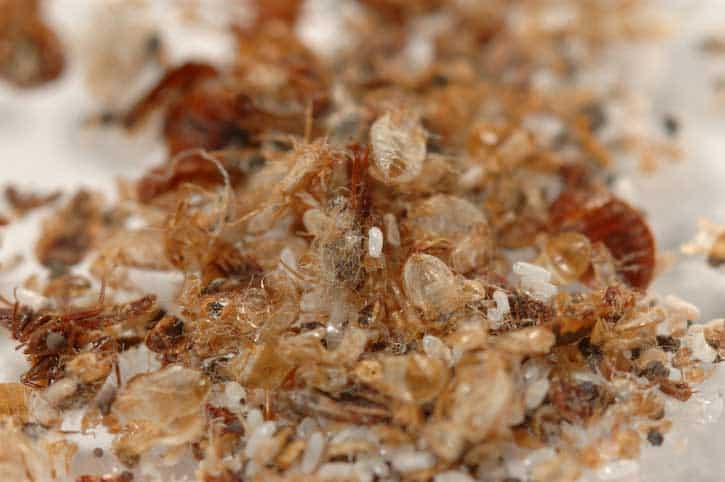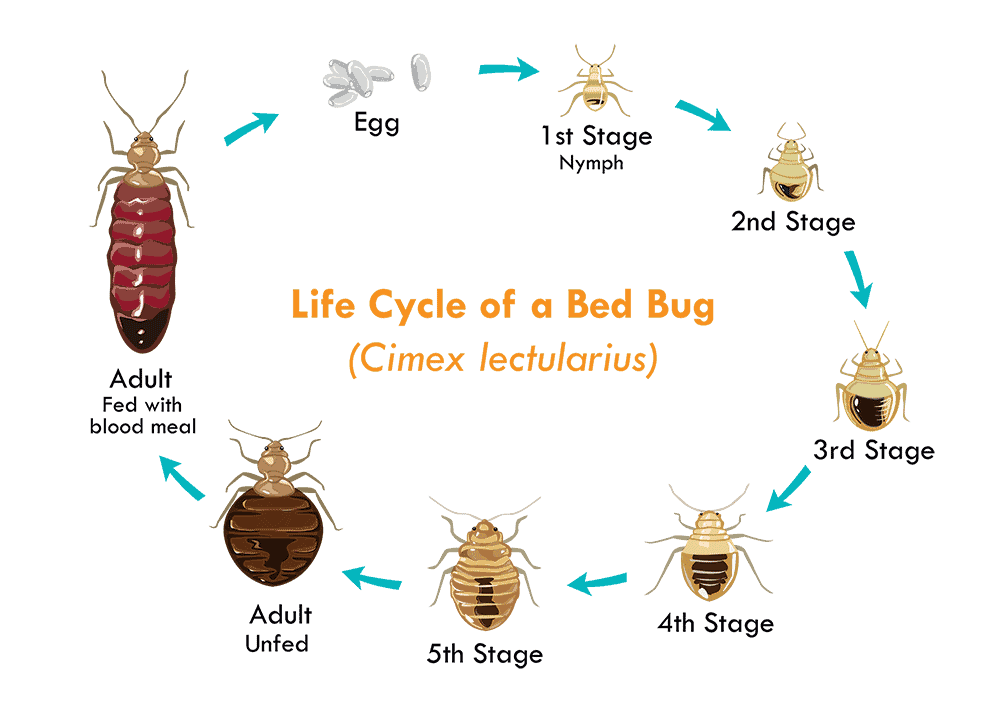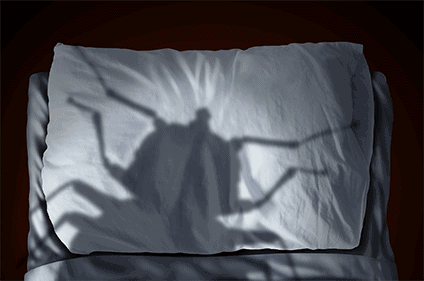When bed bugs get mentioned, many things come to mind, especially for individuals who have dealt with these parasites firsthand. However, the one thing that seems constant is how these pesky creatures give people sleepless nights by biting every part of the body they come into contact with. You may ask, how on earth do these reddish-brown parasites come to your house in such massive numbers? And why is it that hard to get rid of them? How do bed bugs reproduce?
It is not that these creatures travel in large numbers; their rapid increase is due to their production process. And the only way to banish them from your residence is to learn about their reproduction process.
Bed Bugs Reproduction Process and Lifecycle
How Bed Bugs Reproduce
The bed bugs’ breeding habits are interesting, but these reproductive habits can also be described as bizarre. The mating process between male and female bed bugs is known as traumatic insemination. The process involves the male bug stabbing the female with its specialized reproductive organ anywhere in the abdomen. Once the male gametes get introduced into the female bug’s body cavity, they travel to the reproductive parts, meet the eggs, and fertilize them.
The male seminal fluid contains antimicrobial properties, ensuring that no pathogens get introduced during the mating. Once fertilization occurs, the eggs remain viable inside the female bug for 5-7 weeks. However, the bug can start laying eggs as early as three days after fertilization. Research indicates that males are likely to mate with fully fed females since their outer membranes are stretched and thinner, thus can be pierced easily.
Since the reproduction process involves piercing, constant mating can see the female bed bugs get hurt. As such, the female may distance themselves from the rest of the colony and find a place to feed better and lay the eggs. During this period, she will feed regularly, ensuring that the eggs develop in the best condition possible.
How Many Eggs Can a Single Female Bed Bug Lay?

On average, a female bug can lay 3 to 8 eggs daily, but if they are feeding properly and the temperatures are great, they lay up to 12 eggs a day. However, research indicates that a female can lay an average of 200 to 250 eggs in its entire lifetime. There are a few exceptional cases where female bugs end up laying up to 500 eggs in a lifetime. Once laid, the eggs stay for 6 to 17 days before they hatch, depending on the temperature. For security purposes, the eggs often get deposited in hidden places such as crevices and small cracks along the baseboards, bed frames, and carpet linings.
To ensure that the eggs stay together, they connect with an adhesive layer. They measure approximately 1 mm in length, and the eggs can often be compared to two grains of salt. Now that you see the number of eggs that a bed bug can lay in its lifetime, you can understand why the creatures spread like bushfire.
What Happens After Bed Bug Eggs are Hatched?
As mentioned, a bed bug’s eggs take 6 to 17 days to hatch. Once hatched, they become nymphs. For a nymph to become an adult bed bug, it needs to pass through five molts, which entails five blood meals from a human host. The five stages of nymph development are known as instars. It sheds its exoskeleton at each stage, and that is why one of the things you should look out for when trying to figure out if there are bed bugs at your home is the shells. Bed bug nymphs that fail to reach the host or blood meal to feed will usually die. The nymph’s appearance looks more like a smaller version of the adult bug.
After the five molts, the nymph becomes an adult and regularly feeds. If the conditions are right, the nymph becomes an adult in 5 weeks. The life cycle starts again with the males mating with the female bed bugs after feeding.
When it comes to their life spans, these nocturnal creatures have relatively short lives of about 4 to 7 months. However, some bed bugs can live up to 11 months in perfect conditions.
The Bed Bug’s Life Cycle in a Nutshell

- Eggs – Takes 6-17 days to hatch
- Nymph – Takes five molts to become an adult
- 1st Stage Nymph
- 2nd Stage Nymph
- 3rd Stage Nymph
- 4th Stage Nymph
- 5th Stage Nymph
- Adult bed bug – Lives for 4-6 months
A Few Facts About Reproduction
Temperature Is an Important Factor for Bed Bugs Reproduction
The warmer the environment, the better it is for a bed bug to reproduce. Warmer environments offer a more conducive climate for faster hatching of the eggs, and the nymph grows faster when it’s in a warm climate and has adequate food.
A Single Female Can Ruin Your Home
In the rightful conditions, a single bed bug can lay 3 to 5 eggs daily. And to make matters worse, the eggs will need 6-17 days to hatch and about five weeks for the nymph to become an adult. With such a tempo of breeding and reproduction, you can understand why one bug can make your life miserable.
Like the Bed Bugs, Their Eggs are also Hard to Find
Bed bugs ensure that their eggs get concealed in areas that we don’t inspect regularly. These eggs can be very difficult to see. They deposit their eggs in hidden places such as bed crevices, gaps in the baseboards, attics, or even under or inside the furniture.
American Bed Bugs Differ in Reproduction to Those in the Tropics
Bed bugs in tropical regions will lay fewer eggs than those in America. The tropical bed bug can lay about 50 eggs in its entire lifetime, while the American bed bug can lay about 200 eggs.
Final Verdict
If you wondered why it is essential to immediately take action once you detect bed bugs in your house, this piece unfolds everything how do bed bugs reproduce and why it’s important to choose the right company. Failure to take swift action can see the nocturnal red-brown multiply rapidly, making it extremely challenging for you to eradicate them.


